Articles Archive
See all articles and discover more interesting topics!
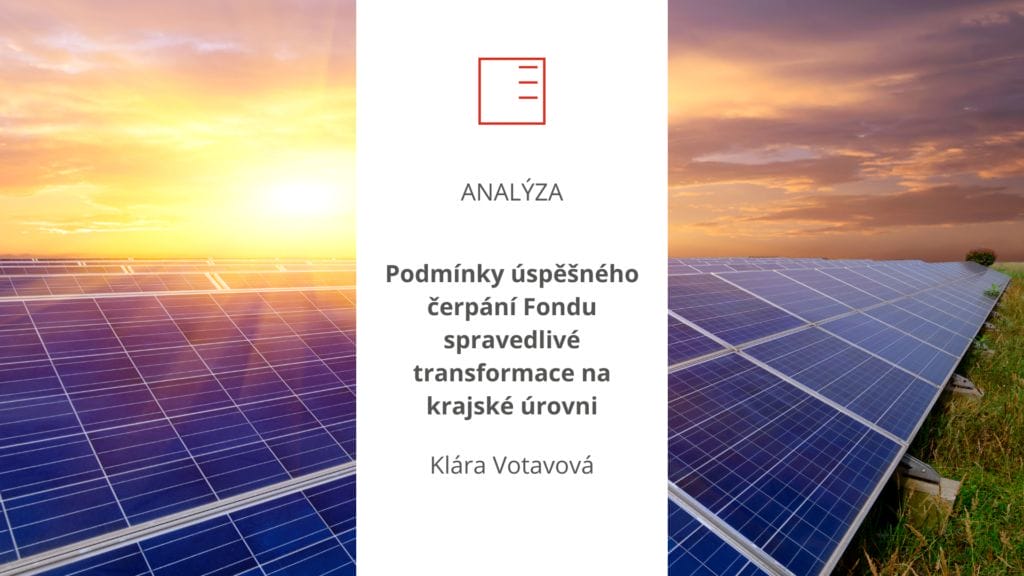
Analysis | Conditions for Regional Preparedness to Draw on the Just Transition Fund
Through interviews with officials and other relevant actors at national and regional level, this research report identifies conditions for regional preparedness to draw on the Just Transition Fund. Researcher at EUROPEUM Institute Klára Votavová compares the situation in two of the three Czech regions that are drawing on the Fund: Moravian-Silesian and Karlovy Vary Region.
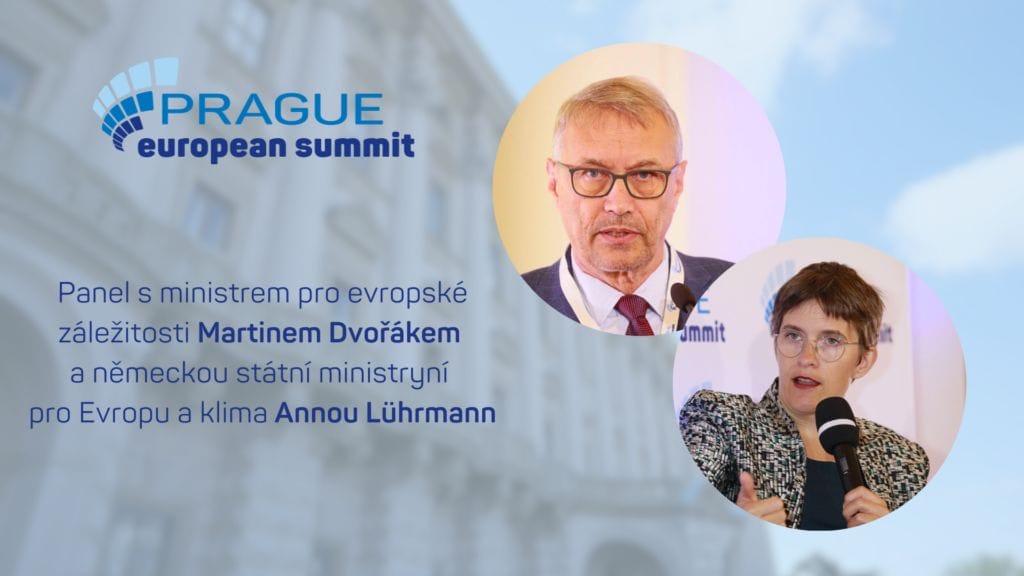
PES 2024 | The EU must cooperate not only militarily, but also to defend itself against cyber attacks from Russia, said Minister Dvořák at the conference
The second day of the Prague European Summit 2024 conference at the Czernin Palace was opened with a speech by Czech Minister for European Affairs Martin Dvořák. He thinks of the enlargement of the European Union as crucial. "We have to realize that the enlargement of the EU, our defense and security and the current Central European position are interconnected," he said.
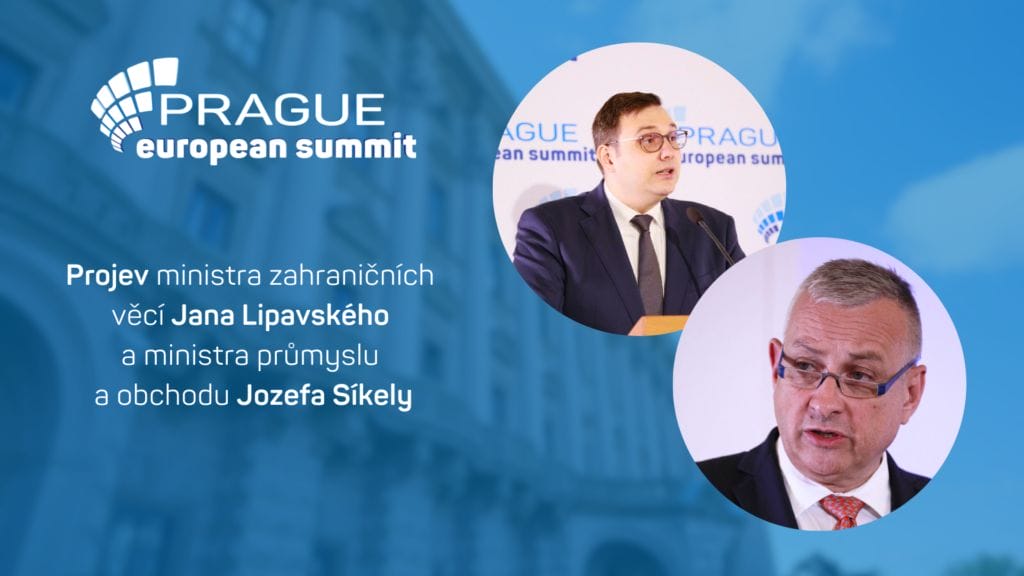
Prague European Summit | "Nuclear energy must be part of the Green Deal." Ministers Lipavský and Síkela presented their priorities for the next European Commis
Minister of Foreign Affairs Jan Lipavský and Minister of Industry and Trade Jozef Síkela delivered speeches at the 10th anniversary of the Prague European Summit. Both responded to the ever-changing challenges facing Europe and Russia's expanding aggression, while Minister Síkela stressed the need of economical transformation.
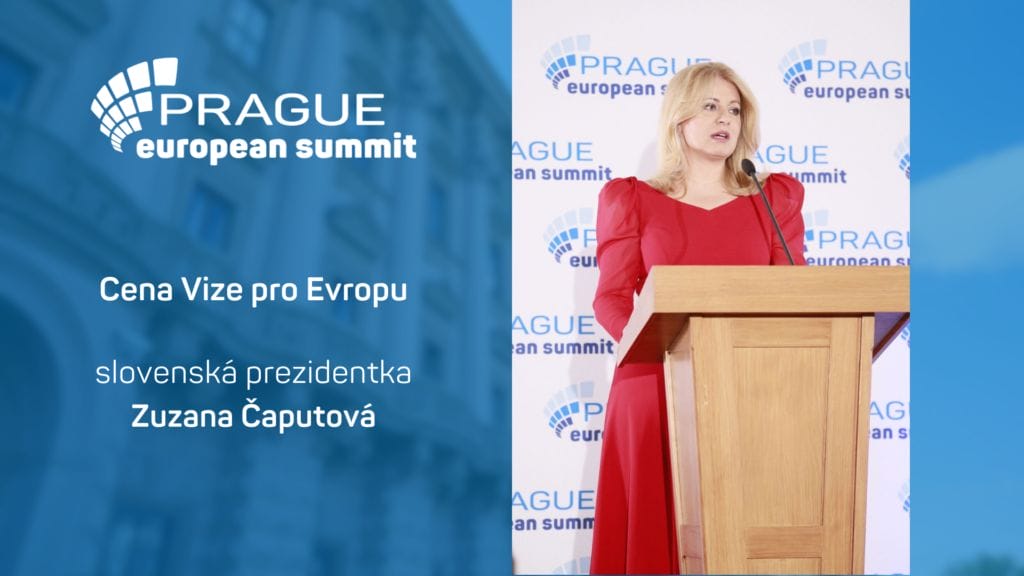
Prague European Summit | Slovak President Čaputová warned against the rise of extremism and hatred on social media
Slovak President Zuzana Čaputová was the guest of honour at the 10th anniversary Prague European Summit. At the Czernin Palace, she received the traditional Vision for Europe Award from the Czech Minister of Foreign Affairs Jan Lipavský.

Policy paper | Here to stay, but in what form? Researching the potential of cross-border telework in the digital economy
The rapid uptake of telework, facilitated by digitalisation, has upset a system based on physical presence in the workplace in the EU. Especially since the pandemic, telework has become increasingly prevalent and an integral part of employees’ working and expectation patterns. Our research fellow Silke Maes covered this topic in her policy paper, highlighting the challenges and opportunities telework presents for cross-border coordination.
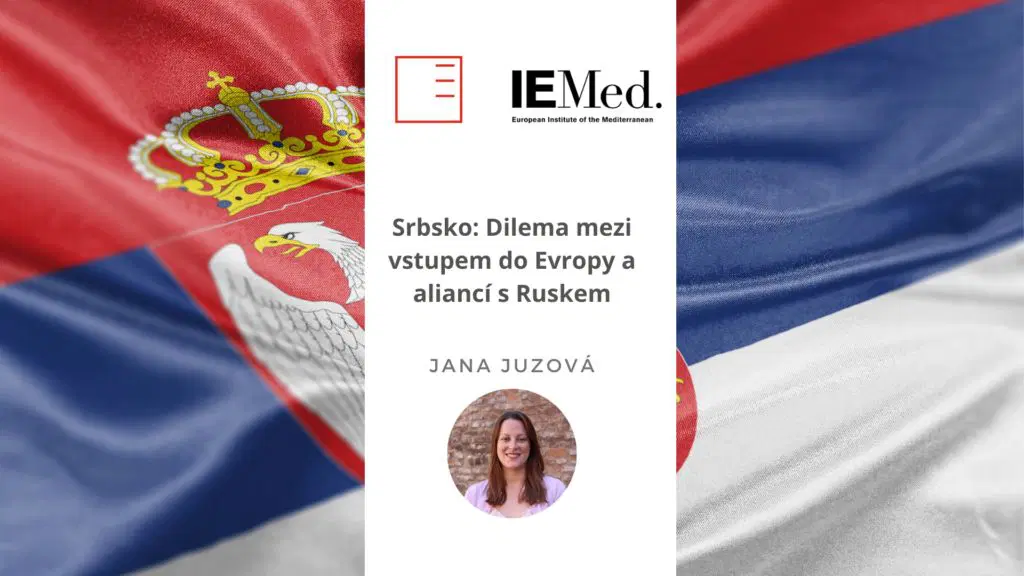
IEMED | Serbia: The Dilemma between European Accession and Alliance with Russia
With Ukraine’s defence against Russia heading toward a stalemate in the second half of the year and increased pressure inside the EU to deliver on its promises to provide the country with needed financial and military support, Serbia’s ambiguous relationship with Russia and the West has been brought increasingly into the spotlight in 2023. The Serbian Progressive Party (SNS), ruling since 2012, and President Aleksandar Vučić have been responsible for continued democratic backsliding and have failed to align with the Union’s foreign policy during Serbia’s lengthy EU accession process, pushing the situation closer towards a tipping point in Serbia-EU relations. Senior researcher at EUROPEUM Institute, Jana Juzová, describes this in more detail in her article for the European Institute of the Mediterranean.
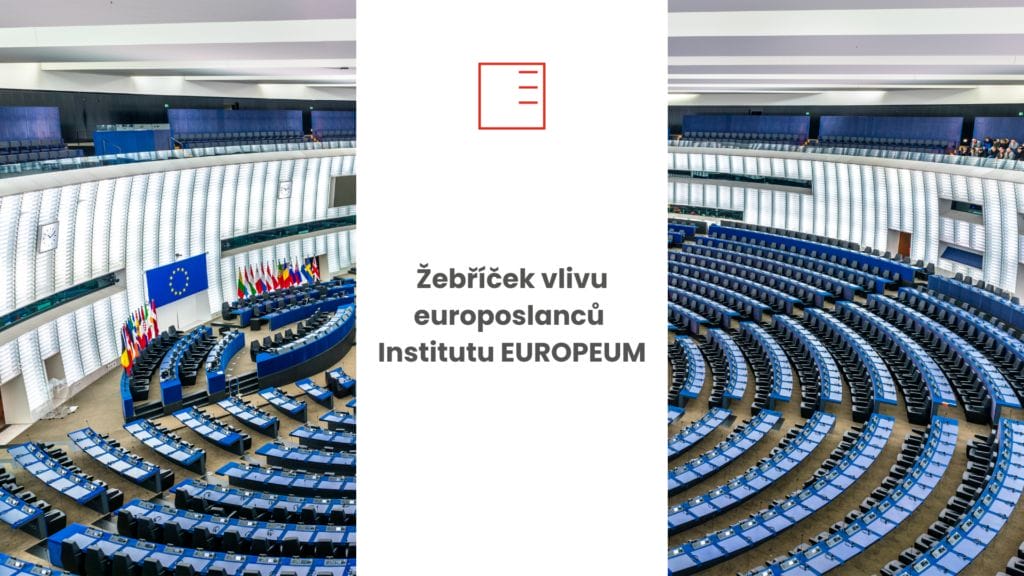
EUROPEUM Institute's ranking of MEPs' influence
EUROPEUM Institute organized a survey among selected experts and stakeholders in European politics to evaluate the performance of current Czech MEPs. The performance of MEPs is difficult to evaluate because there is no completely objective set of criteria that would clearly show this. Therefore, EUROPEUM approached diplomats, officials, academics and other experts from the EU policy environment to compile its own ranking.
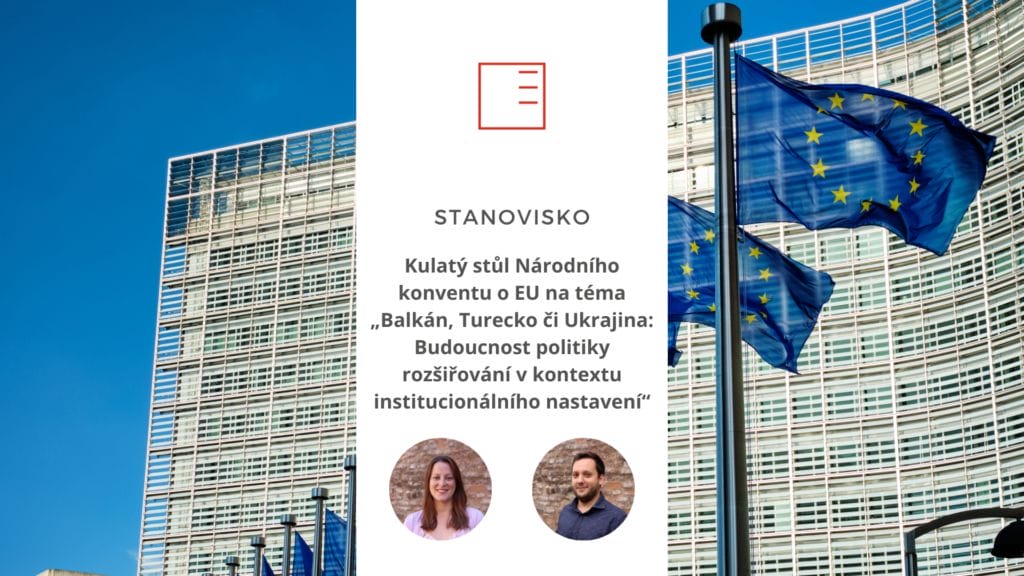
Position | National Convention Round Table on the EU
How to improve the EU enlargement process? How to ensure that the democratising effect of the accession process is sustained beyond the eventual accession to the EU? And are EU institutional reforms a necessary condition for EU enlargement? Answers to these and other questions are offered by the EUROPEUM Institute for European Policy's contribution to the National Convention on the EU's roundtable on Balkans, Turkey or Ukraine: the future of enlargement policy in the context of institutional settings.
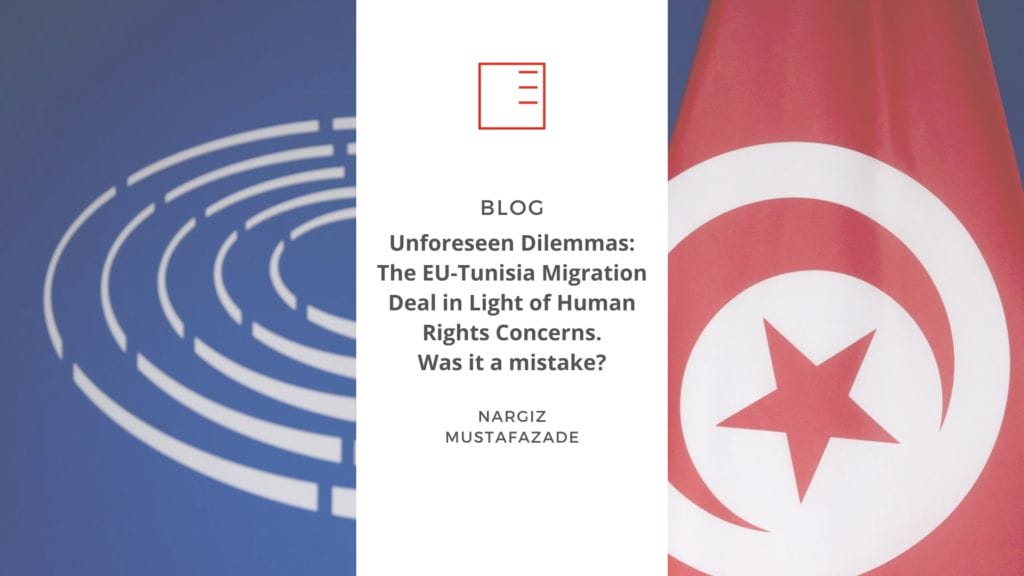
BLOG | Unforeseen Dilemmas: The EU-Tunisia Migration Deal in Light of Human Rights Concerns. Was it a mistake?
Tunisia has become the main exit point for asylum seekers and refugees, especially those from sub-Saharan Africa. The EU, faced with a surge in arrivals to Lampedusa, has bolstered its cooperation with Tunisia, signing a Memorandum of Understanding with President Kais Saied. However, questions arise over the EU's handling of human rights abuses in Tunisia, reminiscent of past agreements with Turkey. Nargiz Mustafazade, a trainee in the Brussels office of EUROPEUM Institute, writes about this topic in her blog.

BLOG | Radio Silence: EU Media Laws in the Hungarian Context
The European Union has passed major legislation to try and secure media freedom and independence in recent years. However, for the state of media pluralism in certain Member States, these efforts have come too late. In the Hungarian context, a pro-ruling party media ecosystem stands well-entrenched in the private and public media sector. Writes our researcher, Henry Barrett, a Fulbright-Schuman Grantee.

Policy Paper | 20 years of cohesion policy as a "Beware of Greeks bearing gifts"?
It has been 20 years since the Czech Republic and 9 other Central, Southern and Eastern European countries joined the European Union. This was on the promise of increased prosperity and the so-called economic catching-up of the post-communist part of Europe. Cohesion policy was to play a key role here. Vít Havelka writes in his Policy Paper.

Policy paper | Current EU industrial policy undermines economic convergence between old and new EU countries
The post-communist states of Central and Eastern Europe, including the Czech Republic, joined the European Union at the height of globalisation and the dominance of the so-called Washington Consensus policies. However, the global economic crisis of 2008 showed shortly afterwards that these policies had their limits. Read more in Klára Votavová's Policy Pepeu.